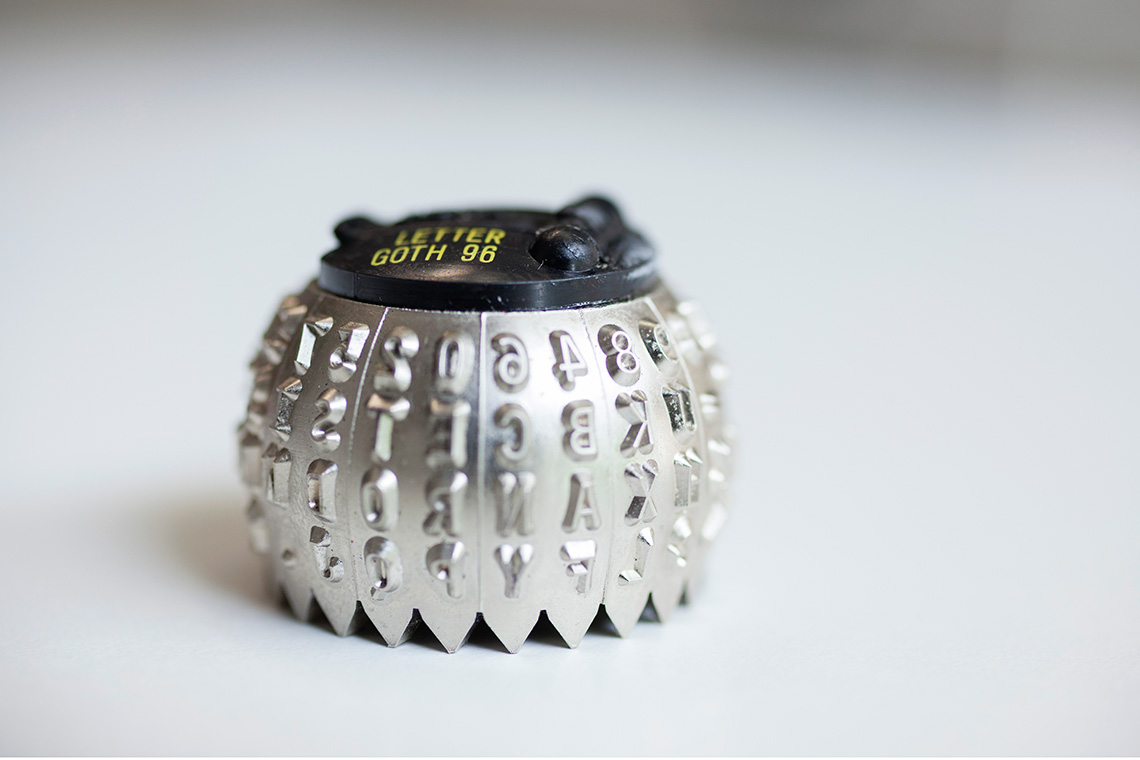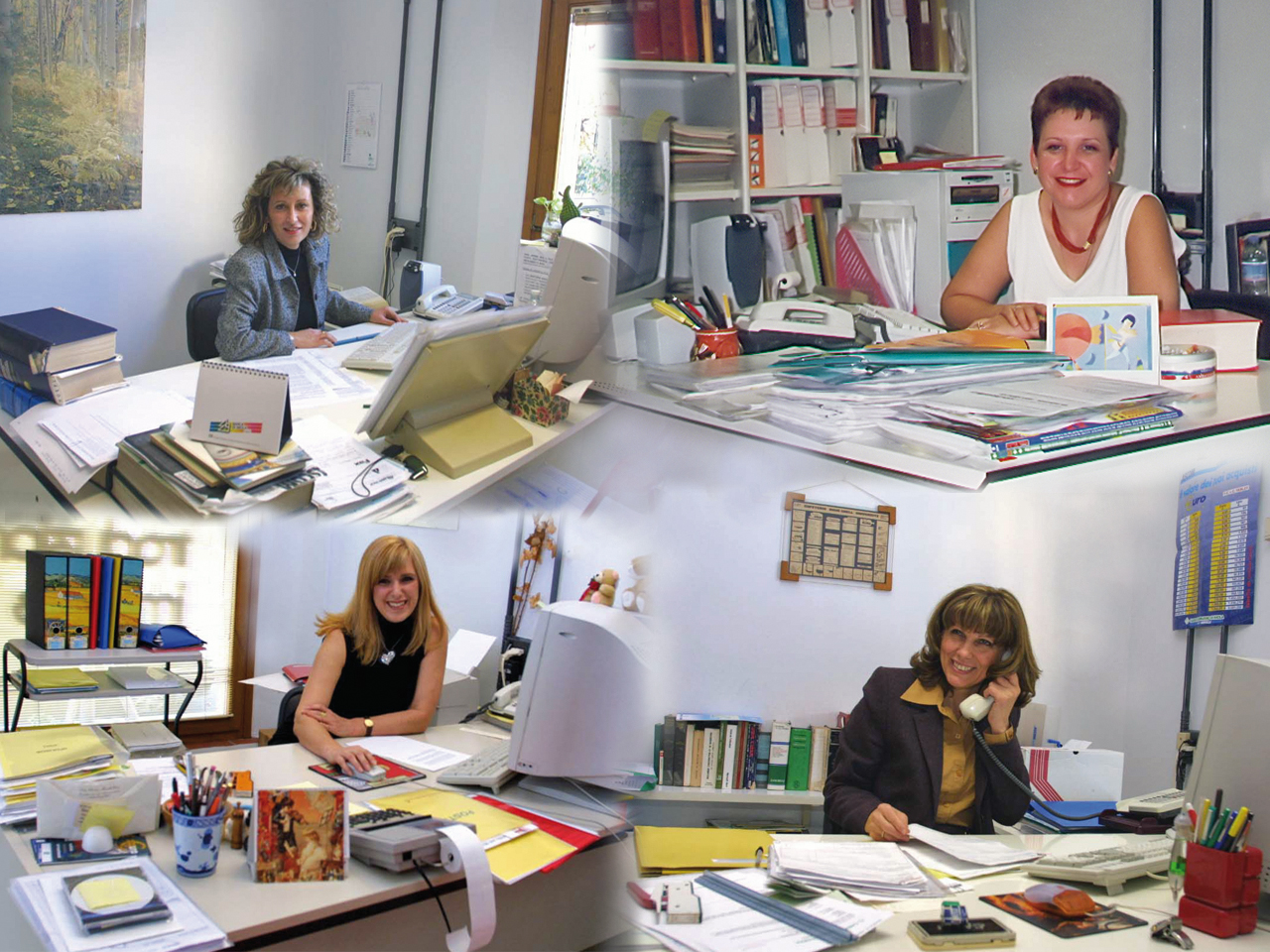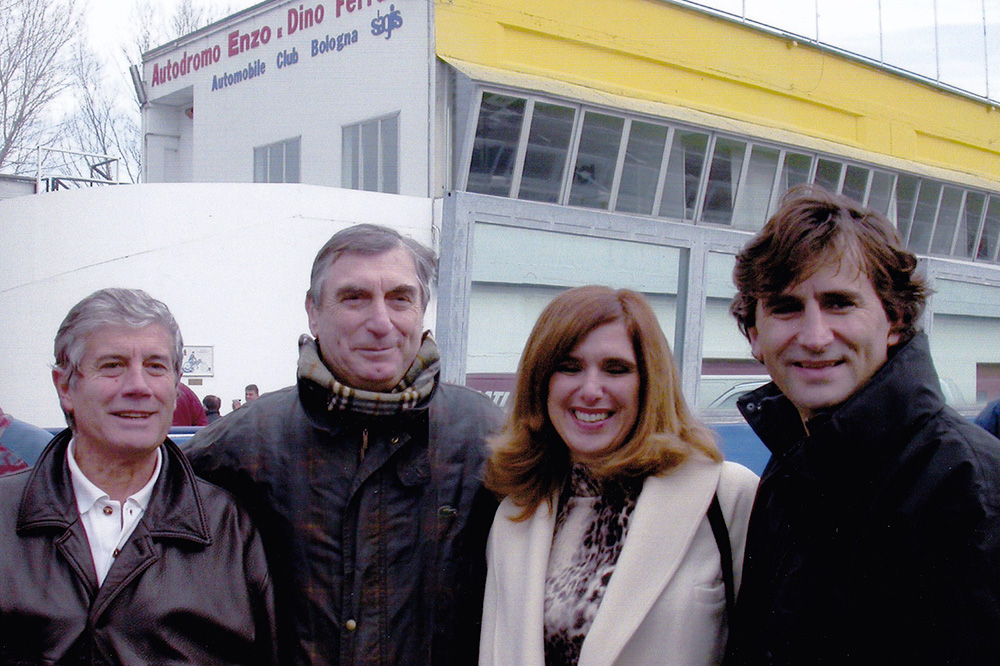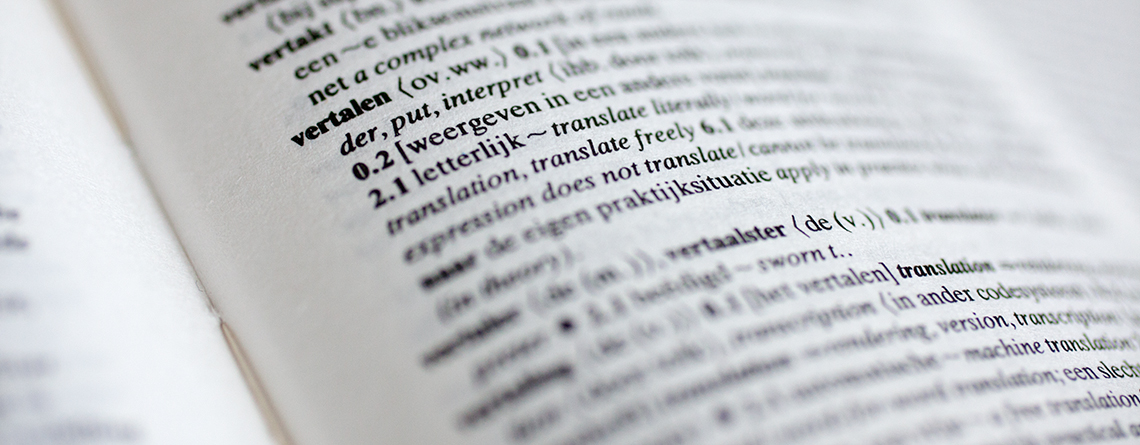1976
Imola has a thriving industrial and business community. Four young professional graduates plan to open the area’s first translation agency to provide large, small and medium-size companies, legal firms and private citizens with translation and interpreting services.
1977
Centro Traduzioni Imolese (CTI) is founded as a de facto company. Capital stock is 1,200,000 lire equally divided among the four partners Fatima Masi, Maria Pia Santandrea, Alda Zanelli and Benedikta Zarbock.
The translation work is done from Fatima Masi’s home, the office equipment consisting of a desk and electric typewriter.
1979
The company relocates to a small office in via Carradori 17, Imola. Intense promotion work begins to present translation and interpreting services to local companies.
 The partners immediately focus on purchasing the most innovative machines on the market and begin working with IBM Selectric ‘typeball’ typewriters. Unlike other machines of the time, the typeball font element could easily be replaced, allowing a variety of characters to be printed on the same document and significantly speeding up translations requiring the Cyrillic alphabet. Another innovation was the absence of the typewriter carriage: on previous machines the carriage into which the paper was inserted moved as the typebars struck the centre of the machine. On the Selectric, instead, the typeball moved left and right and the paper was fed further in with each new line: hence, no carriage. Another advantage of the time that should not be under-estimated was the availability of transparent correction tape installed directly on the machine, allowing perfect elimination of any typing errors.
The partners immediately focus on purchasing the most innovative machines on the market and begin working with IBM Selectric ‘typeball’ typewriters. Unlike other machines of the time, the typeball font element could easily be replaced, allowing a variety of characters to be printed on the same document and significantly speeding up translations requiring the Cyrillic alphabet. Another innovation was the absence of the typewriter carriage: on previous machines the carriage into which the paper was inserted moved as the typebars struck the centre of the machine. On the Selectric, instead, the typeball moved left and right and the paper was fed further in with each new line: hence, no carriage. Another advantage of the time that should not be under-estimated was the availability of transparent correction tape installed directly on the machine, allowing perfect elimination of any typing errors.
The year 1982 saw a switch to electronic typewriters with a display, allowing text to be viewed one line at a time and checked or modified before printing.
1981
Centro Traduzioni Imolese becomes the first local service company to install a telex machine, an innovative decision that provides customers with an additional international secretariat service, speeding up communication with other countries and making CTI the de facto Import-Export Office for numerous businesses, whatever the required language. The Italian Post Office, which had, until then, had the monopoly on the service, eventually allowed the device to be installed after several of CTI’s clients wrote letters illustrating their enthusiasm for the idea.
1984
CTI officially becomes a ‘copartnership’ company (in Italian Società in nome collettivo, s.n.c).
 A thermal-paper fax machine is purchased, offering faster, more efficient communication.
A thermal-paper fax machine is purchased, offering faster, more efficient communication.
The first large-scale investment is made, this time in a personal computer (no hard disk, two floppy drives, one for the operating system with 128 Kb of RAM and the other to save data); this first machine had to be connected to the typewriter to print out documents. At the time virtually none of the local companies, not even the large ones, had a word-processing PC.
Demand for Russian translations takes off, making the purchase of a dedicated system and keyboard, able to handle Latin and Cyrillic characters, necessary: system and keyboard are installed on the computer and connected to the typewriters.
1990
The purchase and renovation of a building in Imola’s historic city centre provides a greatly improved headquarters: the spacious, luminous offices of via Melloni 7/c. CTI immediately sets up five modern workstations, each equipped with a network-connected computer and printer. The number of workstations gradually increases (today there are 12).
1991
 Dr. Claudio Costa, world famous orthopaedist and founder of the prestigious Clinica Mobile nel Mondo, the travelling hospita l that provides medical assistance to riders during World Motorcycling and SBK championship events, entrusts CTI with the translation of a regulation into English. The work is completed flawlessly and on schedule. Soon afterwards Dr. Costa establishes the administrative headquarters of the Clinica Mobile at the offices of Centro Traduzioni. Alda Zanelli begins running the Clinica Mobile secretariat on a full-time basis and CTI supplies interpreting and secretarial services at motorcycle races all over the globe: Spain, France, UK, Germany, Czech Republic, USA and even in Australia. It’s the beginning of a long, mutually rewarding professional partnership that has undergone continuous development and involved Centro Traduzioni in some thrilling moments with the world’s greatest motorcycle racers.
Dr. Claudio Costa, world famous orthopaedist and founder of the prestigious Clinica Mobile nel Mondo, the travelling hospita l that provides medical assistance to riders during World Motorcycling and SBK championship events, entrusts CTI with the translation of a regulation into English. The work is completed flawlessly and on schedule. Soon afterwards Dr. Costa establishes the administrative headquarters of the Clinica Mobile at the offices of Centro Traduzioni. Alda Zanelli begins running the Clinica Mobile secretariat on a full-time basis and CTI supplies interpreting and secretarial services at motorcycle races all over the globe: Spain, France, UK, Germany, Czech Republic, USA and even in Australia. It’s the beginning of a long, mutually rewarding professional partnership that has undergone continuous development and involved Centro Traduzioni in some thrilling moments with the world’s greatest motorcycle racers.
1995
Back-office work begins as the Technical Office of A.M.I. (the local utility gas, electricity and water supplier) entrusts CTI with the word-processing of their technical reports. The years 1999 sees the start of a tele-working service in which CTI enters employee hours into a computer system. In 2002 CTI also begins providing services to HERA’s Measurement Office and, in 2009, to C.I.M.S. (Cooperativa Intersettoriale Montana Sassoleone s.c.r.l.). The Forlì and Cesena branches of HERA (once again, a utility company) also become customers for the entry of meter data into the HYPER, SAP and SIEBEL programs, as do HERA COMM for the entry of new free market contract data.
1997
Activation of the first modem-supported Internet connection and first email address. Customers start sending texts for translation without any need for over-the-phone dictation, allowing for fast turnarounds; there is also the added advantage that customers can print the translation on their own headed paper. Fast-changing technology also allows quick translation of catalogues and the delivery of already made-up, print-ready pages. Internet connection revolutionises all document reception and delivery procedures, terminology searches, reference material and the actual execution of the translation, until then done with the aid of only paper-based dictionaries and documents.
2001
The first Centro Traduzioni Imolese website goes online.
2008
CTI starts using the best CAT (Computer-Assisted Translation) tools on the market. These allow translation ‘memories’ to be created and managed, ensuring outstanding accuracy and consistency of terminology plus further advantages for the customer in terms of time and cost. Ever since its founding, CTI has always used a wide variety of software solutions, selected on the basis of compatibility with customers’ systems (from Wordstar, installed on the first computer, to the various versions of Framework, the forerunners of all modern IT word processing tools).
2010
An agreement is drawn up with the Universities of Bologna, Modena and Reggio Emilia to provide students with work experience in general secretarial duties, the drawing up of estimates and the creation of translation memories and specific glossaries. Trainees are also given the opportunity to learn how to use CAT tools.
2013
Restyling of the website and strengthening of CTI’s position on the European Patent translation market.
The translation of industrial patents is one of CTI’s most specialised areas, with staff having acquired, over the years, considerable experience in electro-technical, mechanical, chemical, pharmaceutical and medical fields (to name just a few) in numerous languages, including the official EPC (European Patent Convention) languages of English, French and German.
2014
Change of company name due to one of the partners passing away to:
Centro Traduzioni Imolese di Zarbock Benedikta & C. s.n.c.
2019
Participation in the TRAD19 call for tenders of the European Commission
with final ranking in 3rd place for the EN>IT combination.
Over the four-year contract period, more than 6,000 pages were translated,
obtaining ratings consistently higher than 90%.
2023
Participation in the TRAD23 call for tenders of the European Commission
in a consortium with 2 other partner companies, with the following final rankings:
- EN>IT 3rd place
- FR>IT 2nd place
- IT>FR 2nd place
2024
Change of company name due to retirement of one of the partners to:
Centro Traduzioni Imolese di Zanelli Alda & C. s.n.c.
2024
Soon to participate in the T8-2024 call for tenders of the European Parliament.

